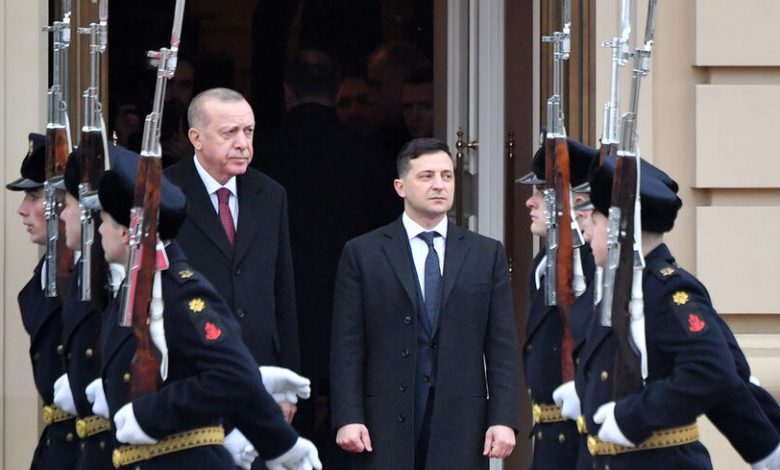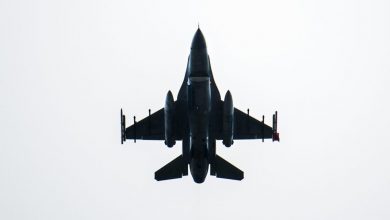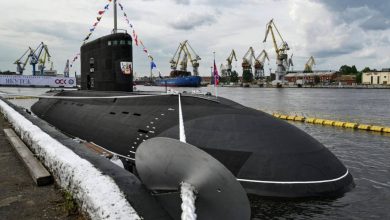Analysis: Ukrainian war and implications for Türkiye, Azerbaijan

Türkiye and Azerbaijan have been given opportunity to grow their influence as alternatives to Russian gas as a result of Ukrainian war
Russia’s war with Ukraine was Vladimir Putin’s gamble, which created a severe economic problem for Russia. Yet at the same time, it has provided great opportunities for some countries to take advantage of the situation. Türkiye and allied Azerbaijan are among them. Taking advantage of the emerging vacuum, they could send an increasing amount of gas to Europe and increase their influence. The recent agreement between Azerbaijan and the EU to increase gas deliveries shall be seen in this context.
Azerbaijan as a gas supplier and an intermediary
Azerbaijan could be both a supplier of the gas and an intermediary for sending gas from other countries of Central Asia to the West. The fate of Azerbaijan was deeply connected with Türkiye, not only because the gas lines would go through Turkish territory but also because Türkiye had emerged as a significant geopolitical partner. In tandem with Türkiye, Azerbaijan had engaged in a plan to send gas to Europe early on.
In 2009, Türkiye and several other states signed an agreement to send gas to Europe. Azerbaijan and Turkmenistan emerged as major suppliers. The proposed gas line was called Nabucco, after Giuseppe Verdi’s famous opera. Moscow was alarmed, and in 2010, Russian president Dmitry Medvedev, visited Baku and proposed that Azerbaijan increase the selling of Azeri gas to Gazprom, Russia’s major gas company. Russia did not need Azeri gas. Still, the Kremlin assumed that Azerbaijan would not have enough gas for Nabucco in case of a deal.
TANAP and TAP projects
It looked like the plan had worked, and Nabucco was soon scrapped. At the same time, Moscow sent a solid message to Turkmenistan, which had entertained a plan to send gas to the West through the Trans-Caspian gas line. Here, Azerbaijan played an essential role as an intermediary. Moscow warned Ashgabat that it would not let this happen and was ready to use force to stop the project. The fact that Russia was engaged in war with Georgia in 2008 signals that Moscow did not engage in idle threats.
This, however, did not deter Azerbaijan from engaging in a new project. Trans-Anatolian Natural Gas Pipeline (TANAP) was designed to move through Türkiye and thus be protected from potential Russian incursion. It finally joined Trans-Adriatic Pipeline (TAP), which became operational by 2020, sending gas to Europe. At that time, Russia sent massive amounts of gas through North Stream I and Ukraine. Despite many problems, it looked like North Stream II was about to be finished. Still, Moscow was concerned with Azeri gas and implicitly provoked a war between Azerbaijan and Armenia.
Kremlin’s strategy
In August 2020, on the eve of the second Karabakh War, Russia’s Minister of Defense Sergei Shoigu visited Baku. Undoubtedly, the potential war with Armenia, formally a member of Russia’s major military alliance, was discussed. If Shoigu had stated firmly that Russia would engage in a war in the case of Azerbaijan’s conflict with Armenia, Baku would be unlikely to encounter Armenia. Indeed, Russia’s military rating was quite high, and even some Western observers regard Russian military prowess as second in the world. Still, Shoigu sent the implicit message that Moscow would not engage.
The reason for this implicit abandonment of Armenia was not just Yerevan’s flirtation with the West, which undoubtedly irritated Moscow, but also the belief that a prolonged war in the Caucasus would either damage the gas lines or at least show to Europe that gas lines from Azerbaijan were not a reliable source, and this would rekindle Europe’s passion for North Stream I, and speed up authorization of North Stream II.
Thus, the Kremlin regarded Azeri gas as a potential problem and hoped for destabilization in the North Caucasian region. Still, despite the Kremlin’s expectations, Azerbaijan won with Türkiye’s direct support. There was no damage to the gas lines, and Europe’s appetite for Azeri gas was not diminished. With the start of the Ukrainian war, Azerbaijan and Türkiye gained even more significance for Europe.
Türkiye’s role in new geopolitical arrangements
Russians and Western were convinced that a war with Ukraine would be similar to that with Georgia. Still, the war went awry and transformed into a protracted standoff. Worst of all, the EU, or at least most European countries, dramatically reduced their Russian gas consumption. At the beginning of Brussels’ actions, the Kremlin protested. Still, later, the Kremlin declined gas deliveries, even more, assuming that this would lead to a serious economic and social crisis. While the repercussions of the severe gas shortage in Europe remain to be seen, it goes without saying that the vacuum created new opportunities for Azerbaijan and Türkiye behind it to increase the delivery of Azeri gas to Europe dramatically. Azerbaijan would not be able to operate without Türkiye’s support, which counterbalanced hostile Armenia, Russia and Iran.
Other benefits
Russia’s conflict with Ukraine led to increasing fear among countries of the former USSR, which could well be on Russia’s list for future military ventures. Kazakhstan is among them. The Kremlin folk have often stated that the northern part of the country was Russian Siberia and should be returned to Russia. Kazakh elite takes this statement seriously and has engaged in an increasing relationship with many countries that could counterbalance Russia and Türkiye. Russia’s isolation also has brought tangible economic benefits to Ankara. Russian business people could invest, and Russian tourists visit. Finally, Turkish Airlines became practically the only way for many Russians to fly outside Russia. Thus, Türkiye also benefits economically as a result of the conflict between Russia and Ukraine while maintaining a relationship with Russia and the West.
AA





